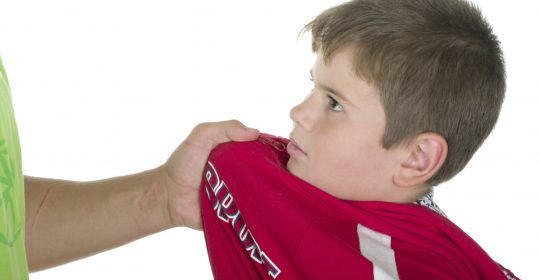 A majority of adults can remember a time when corporal punishment was a fairly common thing. Whether it was a rapping on the knuckles, or a full on paddling, forms of acceptable discipline for children has changed over the years. Even school systems have shown this trend against corporal punishment. Nowadays, only a minority of states, Florida included, allow corporal punishment in schools. With several studies decrying the use of corporal punishment in school, you might wonder whether the use of corporal punishment might have an effect on custody determinations in a divorce. The short answer is yes. In legal matters, however, a further examination of the facts can cause the outcome of a case to change.
A majority of adults can remember a time when corporal punishment was a fairly common thing. Whether it was a rapping on the knuckles, or a full on paddling, forms of acceptable discipline for children has changed over the years. Even school systems have shown this trend against corporal punishment. Nowadays, only a minority of states, Florida included, allow corporal punishment in schools. With several studies decrying the use of corporal punishment in school, you might wonder whether the use of corporal punishment might have an effect on custody determinations in a divorce. The short answer is yes. In legal matters, however, a further examination of the facts can cause the outcome of a case to change.
In America, a parent has a recognized and fundamental interest in the care, custody, and control of his or her children. In fact, there is a presumption that fit parents act in the best interests of their children. While some people may claim otherwise, state governments are interested in protecting the best interests of their citizens. If a parent is deemed to be unfit for any reason, then it is possible that the state would take action to remove the child from the parent for a period of time. In fact, a state may even take actions to permanently remove a child from the custody of an unfit parent, if necessary.
Child Custody Determination
While the government cannot affect a parent’s rights over a child if that parent is not ‘unfit,’ the court systems take a slightly different approach. Much unlike the government approach, in a divorce, or in a custody dispute, a judge makes a determination primarily on the best interests of the child. During a custody hearing, there does not have to be state action challenging a parent’s fitness, and both parties to a custody determination can generally start on equal footing as parents of the child.
Best Interests of the Child
Judges in family courts, however, have extensive jurisdiction over parts of a person’s life that the court might not normally have access to. For example, a judge in a child custody case can restrict a parent’s visitation time, garnish wages to cover unpaid child support, and can even tell a parent to refrain from speaking poorly about the other parent in front of the children. You might ask yourself: how can a judge do all this? This is because a judge in any child custody case is generally concerned with only one thing: the best interests of the child. When considering the best interests of the child, judges consider several factors, including, but not limited to:
- the ability of each parent to foster a close and continuing parent-child relationship
- the anticipated division of responsibilities after litigation
- the demonstrated ability of each parent to determine, consider, and act upon the needs of the child
- the moral fitness of the parent
- the mental and physical health of the parent
- the home, school, and community record of the child
- the parent’s knowledge of the child’s circumstances (friends, medical needs, teachers, daily activities, etc.)
A more complete list of factors that courts consider when determining the best interests of the child can be found at Florida Statute 61.13(3).
While courts do have the power to determine who gets primary custody over a child through the custody determination, it is important to note that if the parties to a divorce work together and form their own agreement, the court will have little impact other than the enforcement of said agreement. Fortunately, because the court is interested in preserving the best interests of the child, it will not allow an agreement to clearly cause a negative impact on the child.
Corporal Punishment
Taking the court’s approach to child custody into account, it can be seen that anything that has an impact on the child can affect a child custody determination. When determining whether the use of corporal punishment can affect your child custody case, it is important to keep an eye on the facts. A few things you can look to regarding a spouse’s use of corporal punishment include:
- what kind of corporal punishment is used
- how often is it used
- why is the parent using corporal punishment
- whether the use of corporal punishment is structured or arbitrary
- to what extent does the parent continue the use of corporal punishment
- the severity of the punishment
It is important to remember that, in custody determinations, the court is primarily interested in the best interests of the child. If a parent is using excessive force, or only uses corporal punishment because it is a convenient form of discipline, then there will likely be a negative impact on that parent in the custody determination. If, on the other hand, the discipline is used sparingly, or in specific circumstances, and is within reasonable boundaries, then the court might not consider the use of corporal punishment too negatively. In the end, it all comes down to how the court perceives the use of corporal punishment. The use of corporal punishment is just one factor that affects a custody determination and may not be determinative on its own.
